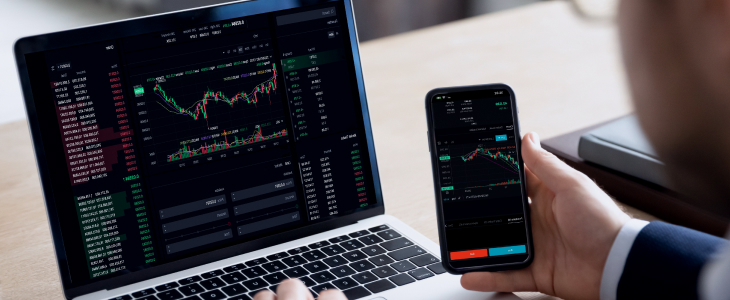The Crucial Role of Psychology in Forex Trading 1656364922
Posted on November 7th, 2025 by admin in trading13 | No Comments »

The Crucial Role of Psychology in Forex Trading
Forex trading is not just about understanding charts, indicators, and market trends. forex trading psychology Top MT4 Trading Apps can provide you with the necessary tools and insights, but the real challenge lies in mastering the psychological aspects of trading. Trading psychology encompasses the emotional and mental factors that influence traders’ decisions. Whether you are a novice or an experienced trader, understanding and managing your psychology can significantly impact your trading success.
Understanding Trading Psychology
Trading psychology refers to the mental and emotional behaviors that affect a trader’s performance. The Forex market is incredibly volatile and unpredictable, meaning that traders must be prepared to deal with significant emotional and psychological challenges. Essential aspects of trading psychology include emotions like fear, greed, and hope, all of which can lead to impulsive decision-making and irrational behavior.
The Impact of Emotions on Trading
Emotions play a critical role in shaping the trader’s actions. Fear can cause a trader to close positions prematurely, while greed may lead to holding onto losing trades or over-leveraging. Both tendencies can be detrimental to a trading strategy. Fear of missing out (FOMO) is another potent emotion that can tempt traders to enter trades impulsively without adequate analysis.
Successful traders recognize their emotional triggers and develop strategies to manage them effectively. This might involve setting clear trading rules, applying stop-loss orders, or taking regular breaks to avoid burnout and emotional fatigue.
Developing a Trading Plan
A well-thought-out trading plan acts as a roadmap for traders, helping them stick to predefined strategies and reducing the influence of emotions. A trading plan should include specific criteria for entering and exiting trades, risk management rules, and goals.
By having a structured approach, traders can make informed decisions grounded in logic rather than letting emotions dictate their actions. Consistency is crucial; adhering to a trading plan can improve confidence and reduce anxiety.
The Role of Discipline in Trading
Discipline is a cornerstone of successful trading psychology. It involves adhering to one’s trading plan, following set strategies, and maintaining emotional control. A disciplined trader is less likely to react impulsively to market fluctuations.
Practicing patience is essential in Forex trading. Trades may not always follow the expected patterns, which can be frustrating. However, disciplined traders understand that not every signal requires action; sometimes, it’s essential to wait for a more favorable setup.
Building Resilience
Resilience in the context of trading refers to the ability to recover from losses and maintain a positive attitude. Losses are inevitable in Forex trading, and how traders respond to these setbacks can significantly influence future performance.

Emphasizing a growth mindset can help traders view failures as learning experiences instead of catastrophic events. This shift in perspective fosters resilience and encourages continuous improvement and development.
Using Visualization and Mental Rehearsal
Visualization techniques can enhance trading performance by mentally preparing traders for various market scenarios. By practicing visualization, traders can rehearse their responses to different situations, which can lead to increased confidence and better decision-making during real trades.
Mental rehearsal creates a simulation of trading environments, allowing traders to familiarize themselves with their strategies before executing them. This technique can be particularly useful in high-pressure situations.
Maintaining a Trading Journal
Keeping a trading journal is a valuable practice that aids traders in analyzing their performance and emotional responses. By recording each trade’s rationale, outcome, and the emotions felt during the trade, traders can identify patterns in their behavior and adjust their strategies accordingly.
This reflective practice reveals insights into a trader’s psychological state over time, allowing them to adapt and improve. It also reinforces accountability for one’s trading decisions.
The Influence of Social Factors
The social environment can significantly impact trading psychology. Engaging with other traders, analyzing successes and failures collectively, and understanding differing perspectives can provide support and mitigate feelings of isolation.
However, social influences can also lead to herd behavior, where traders follow the actions of the crowd rather than their analysis. Being aware of these influences is crucial for maintaining individual judgment and decision-making skills.
Seeking Professional Help
If a trader finds that emotions significantly hinder their performance, seeking support from a trading psychologist or mentor can be beneficial. These professionals can provide strategies and tools to develop better emotional regulation, discipline, and resilience.
Conclusion
The importance of psychology in Forex trading can’t be overstated. A trader’s mindset can create or destroy opportunities. By understanding the emotional and psychological factors influencing trading, developing discipline, and adhering to a structured trading plan, traders can enhance their performance and navigate the vicissitudes of the Forex market.
Investment in emotional intelligence is as vital as technical analysis in achieving long-term trading success. Embrace the psychological aspects of trading; the rewards may be substantial.




